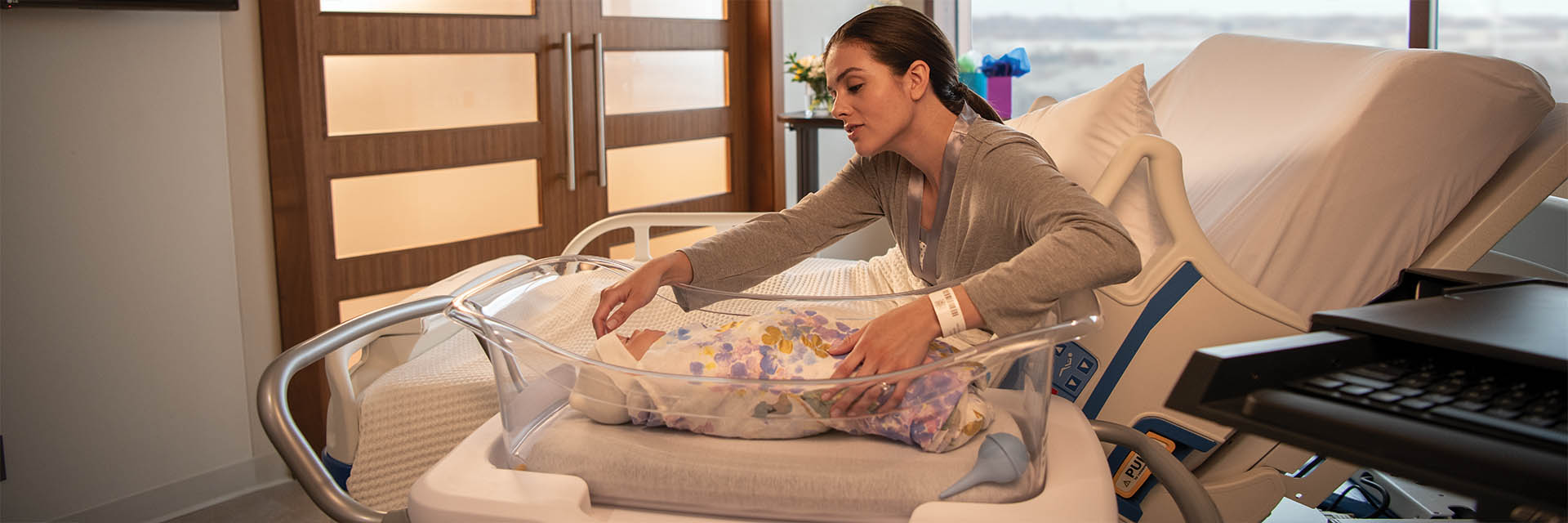After your baby is born, he or she will “room-in” with you—meaning your baby won't be taken out of your room for any reason unless medically necessary. This also means your baby won’t be going to the nursery. You can have most medical procedures, such as blood draws and tests, performed right at your bedside.
Rooming-in will help you establish breastfeeding and bonding with your baby. Research shows that babies who room-in with their mothers have better breastfeeding outcomes and are less stressed
With your baby in the same room, you’ll learn her signals and get attuned to her needs quickly. You'll see your baby’s hunger signs, help soothe her to sleep and be able to do skin-to-skin contact whenever you’d like. Rooming-in can give you confidence as a new mother, well before you head home.
A New Concept
Rooming-in is a relatively new practice in maternity care. For most of the last century, mothers and babies were separated in the hospital—Mom stayed in her room, while her baby went to the nursery.
This practice was easier because many babies were fed formula and nurses could feed them whenever the newborns were hungry. These days, with breastfeeding on the rise, it makes more sense to have babies stay with their moms.
Some moms like to send their babies to the hospital nursery so that they can sleep or receive visitors. But research shows that babies and mothers who sleep in the same room can get better sleep
Of course, if you feel you cannot take care of your baby in your room due to exhaustion or weakness during recovery, you can ask that your little one be cared for by the nursing staff.
See also ...
• Breastfeeding duration: rooming-in vs. separate care
This message is not intended to provide individual medical advice. Always seek the advice of a physician or qualified healthcare provider for any questions you have about your health or medical condition, your breastfeeding issues and your infant's health. Never disregard, avoid or delay contacting a doctor or other qualified professional because of something you have read in our emails, webpages or other electronic communications.
Powered by UbiCare

